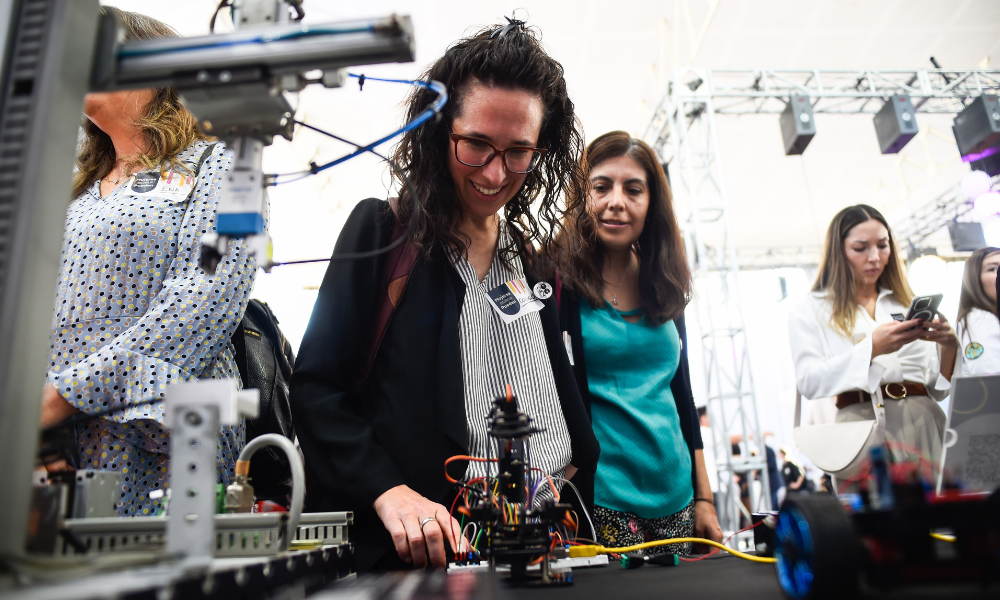The Yentle Syndrome refers to when women receive incorrect diagnoses and treatments due to gender biases, because scientific research is focused on male models. This syndrome was only recognized in 1991 by Bernadine Patricia Healy, the first female director of the National Institutes of Health in the United States.
Having more women in science is vital. As well as in technology, engineering, and mathematics. It is imperative that we promote greater female participation in STEM (Science, Technology, Engineering, and Mathematics) careers, both at the university level – where women represent 30% of enrollment – and in technical and vocational education – where women represent only 12% of first-year enrollments, according to 2022 data. We need more women programming, not only because this promotes innovation and development by including half of the population, but also so that algorithms have fewer gender biases. Let’s remember that every day we use artificial intelligence for different everyday things, a gender-biased algorithm could exclude a woman applying for a job, health insurance, a bonus, among others.
We need to empower more women in STEM careers, and we need to do this strongly from different fronts, from the public, private, and civil society organizations. This is fundamental as it contributes to the development of Chile, which affects us all. In fact, according to figures highlighted by former Finance Minister Rodrigo Valdés in an ICARE seminar in early March, if female labor participation were to increase by 10 percentage points, the country’s income would increase by more than 4%. And it is because women studying STEM careers can aim for better employability and higher salaries, which strengthens the country’s workforce for the challenges of the 21st century.
At the Luksic Foundation, we are working with INACAP, DuocUC, AIEP, and Santo Tomás to award scholarships to 100 women studying higher-level STEM careers. Additionally, with the same organizations and in alliance with Tremendas, Kodea, Genias, Microsoft, Women in Mining, Antofagasta Minerals, CCU, and Laboratoria, we join in the campaign Women who can do everything, through which we seek to promote, disseminate, and make visible women who are developing in the STEM field. Their testimonies and experiences are an inspiration to us all.
We believe that women can do anything they set their minds to, and this is an open invitation for us to encourage them to dream big, to be able to train in fields that have traditionally been male-dominated, to have the tools to forge their own futures.”

